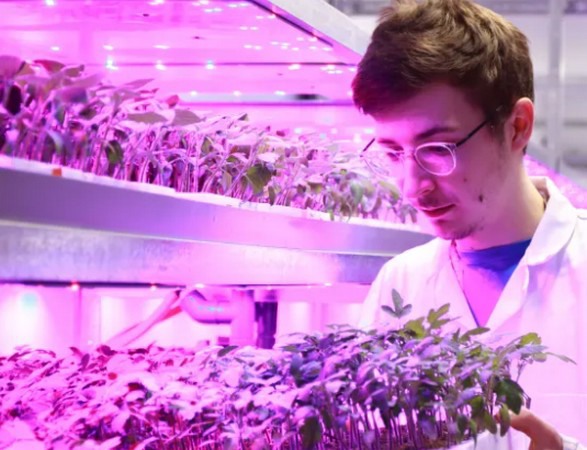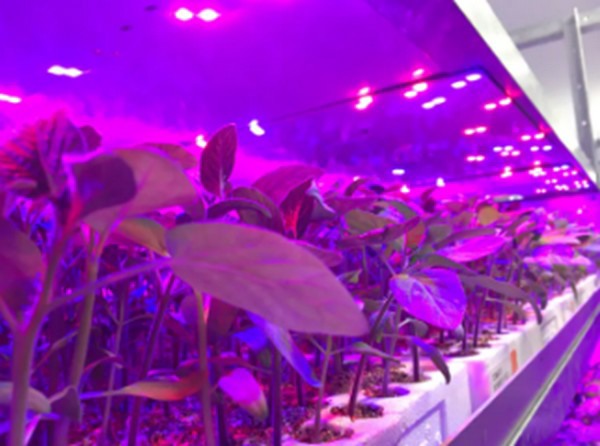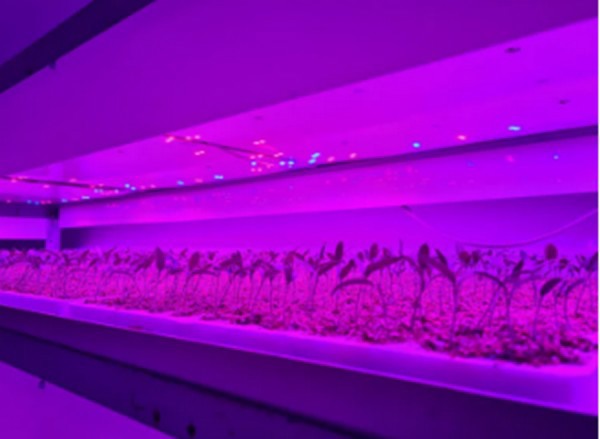It is now widely accepted that Vertical Farming could play a vital role in the changing face of agriculture, but will the challenges with power, capital costs and knowledge, delay, or even stop the vertical revolution? These are the questions the team at iGrowing wrestled with as they set about ensuring that vertical farming is far more accessible and viable environmentally and commercially.
iGrowing is a sister company of Plant Raisers, a UK propagator of glasshouse salad plants. For the past three years, the team has worked to grow seedlings with the least energy within a vertical unit. The project is now fully operational and will be further developed by iGrowing.

Providing a sustainable and energy-efficient unit is extremely difficult as conventional LED lights create heat, making the parasitic loads high and this must be removed to support the plants' welfare. Working in conjunction with Extreme Low Energy, a UK company with knowledge and expertise in DC infrastructure, and Writtle University College, iGrowing team can now offer a system that is dramatically more energy efficient. The fixtures emit virtually no heat and give excellent uniformity over the growing area and as the light units are only 8 mm thick there is an opportunity to maximize the number of layers in any given space. To further improve efficiency the units are completely controllable in terms of light period duration, spectrum, and intensity.
Further energy gains have been achieved by altering the light recipe and duration, depending on crop type and the stage of development. The controls, drivers, and battery units are within the cabin as they again develop minimal heat load. With no surplus heat load from the installation, controlling the environment requires a different approach to the more normal HVAC, as this would normally add significant cost in terms of electrical consumption and capital cost, thus making this development a cost-effective solution.

The environmental credentials have been significantly enhanced as the unit can run 100% off-grid, depending on location, powered completely by solar energy. Power is provided by solar with a stand-by gas generator. Battery technology allows storage and control of power generation. This aspect is controlled and monitored using a bespoke app-based program. The system can also be fitted into larger units taking advantage of the energy savings. Environmental control is provided by fans and, where required, heating. This is controlled by an app-based program that allows control on or off-site therefore remote support is available. The app records data to aid management decisions on the climate.
The iGrowing Team, supported by the extensive growing knowledge within Plant Raisers, aims to make a vertical farming option far more widely available.

“Our hard work, supported by scientific testing, has provided a dramatically more energy-efficient and cost-effective vertical farming solution. With their technology, a much-improved environmental message, and the growing support we will provide, the iGrowing proposition is a compelling one, one we are obviously keen to talk about.’’
For more information:
iGrowing
www.igrowing.co.uk
